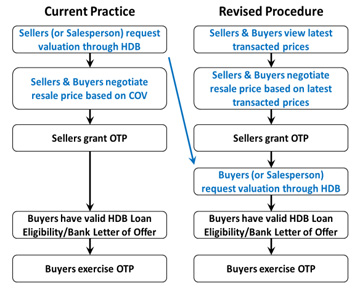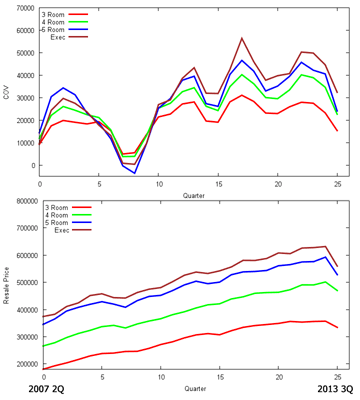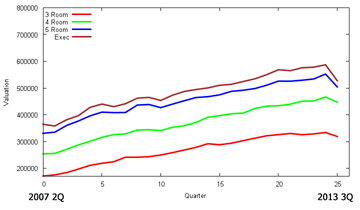|
| |
|
| |
|
|







|
|
TCHS 4O 2000 [4o's nonsense] alvinny [2] - csq - edchong jenming - joseph - law meepok - mingqi - pea pengkian [2] - qwergopot - woof xinghao - zhengyu HCJC 01S60 [understated sixzero] andy - edwin - jack jiaqi - peter - rex serena SAF 21SA khenghui - jiaming - jinrui [2] ritchie - vicknesh - zhenhao Others Lwei [2] - shaowei - website links - Alien Loves Predator BloggerSG Cute Overload! Cyanide and Happiness Daily Bunny Hamleto Hattrick Magic: The Gathering The Onion The Order of the Stick Perry Bible Fellowship PvP Online Soccernet Sluggy Freelance The Students' Sketchpad Talk Rock Talking Cock.com Tom the Dancing Bug Wikipedia Wulffmorgenthaler |
|
bert's blog v1.21 Powered by glolg Programmed with Perl 5.6.1 on Apache/1.3.27 (Red Hat Linux) best viewed at 1024 x 768 resolution on Internet Explorer 6.0+ or Mozilla Firefox 1.5+ entry views: 1386 today's page views: 33 (4 mobile) all-time page views: 3386074 most viewed entry: 18739 views most commented entry: 14 comments number of entries: 1226 page created Fri Jun 20, 2025 00:57:42 |
|
- tagcloud - academics [70] art [8] changelog [49] current events [36] cute stuff [12] gaming [11] music [8] outings [16] philosophy [10] poetry [4] programming [15] rants [5] reviews [8] sport [37] travel [19] work [3] miscellaneous [75] |
|
- category tags - academics art changelog current events cute stuff gaming miscellaneous music outings philosophy poetry programming rants reviews sport travel work tags in total: 386 |

| ||
|
 Recalling the Curry Mile, family dinner at Raffles Marina [N.B. Now to earn it back?] So, SingTel has come up with their price for the World Cup - that'll be S$112.35, please (2006: S$26.25, 2010: S$88). But, but, if you are willing to commit to our disgustingly horribly overpriced BPL package for two years, then it's free! Let's just say I'm not impressed, and for once The State's Times was on the ball in reporting it as a marketing ploy. A Plane Mystery It's been over a week since Malaysian Airlines Flight 370 vanished with nary a trace, and speculation on its fate has dominated global media for most of that period. It's not so much the tragedy (though it must be emphasized that nothing is confirmed yet, despite many supposed leads); what makes it so galling is that we don't know - compare the Air France Flight 447 disaster in 2009, when the wreckage was located approximately where it was expected to be, within a couple of days. This just isn't supposed to happen. You see, we live in a time where uninterrupted communication is taken for granted. Anybody can speak with anybody for pennies in real time, as long as they are anywhere near civilization and have a bit of tech know-how. Even if hiking or sailing in uninhabited territory is your thing, a few hundred bucks will buy a pager-sized emergency beacon that broadcasts one's position over radio and to satellites. It is, then, understandable why the public might be aghast at the thought that a whole jumbo jet can be lost. The answer is that it's not that hard. Radar, which is what air traffic controllers (and the military) rely on, extends only about 200 to 300 km, ditto for ADS-B signals, which means that planes can only be tracked locally through these means. Worse, it appears that secondary radar transponders can be, and likely were, shut down manually. Visually, it is easy to accept nobody noticing - disregarding visits to Changi/East Coast, I don't recall sighting any passenger jets despite Singapore's tiny size and status as an air hub. Human vision range is pretty limited, extending to maybe 20km under near-perfect conditions, in practice rather less. The obvious in-hindsight question then is: why aren't commerical flights equipped with a persistent GPS link? Their routes certainly aren't supposed to be secret, and it's hard to imagine any half-legal use of an airliner where such data would not be welcome. From what I have read, there are three main reasons:
However, the key problem here doesn't seem to be the technology or lack thereof, but that so much of it can be disabled by the pilot - or a hijacker who knows what to look for - even when it is hard to think of a situation where that would be proper. If cost is a concern, one might imagine a few independent satellite phone-like transmitters that automatically activate as and when they detect (receiving GPS signals is free, after all) that the plane has gone off course, that are installed in areas that are not accessible in-flight (within the wings, for example). Indeed, it transpires that maintenance "pings" were sent to satellites - but were too infrequent, and near-completely uninformative. This does at least suggest that the plane could be safe - just possibly somewhere in central Asia, the Middle East, or even Africa. One might have thought that 9/11 would have encouraged more sophisticated tracking measures, rather than more body cavity searches. Further, it looks as if at least two passengers were Iranians travelling on stolen European passports, though they appear to be just normal asylum-seekers. Verne got it right - "Passports are only good for annoying honest folks, and aiding in the flight of rogues". [N.B. On this, being an immigration officer can be a rather thankless job - and now, you too can experience the tedium with a full-fledged simulator (complete with body scanners)! There was also a crowdsourced search of the ocean... perhaps more on this subject next time] Anyhow, it appears that these particular pilots were not too big on security, with some pretty blondes being invited into their cockpit on a past flight, with the dashing wingmen even throwing in a palm reading for free. Malaysian authorities, confronted by the evidence, have finally concluded after days of deep thought that somebody did it, and searched the pilots' homes... after which one of the first things revealed was that one of the pilots was a fervent Opposition supporter! Some things just don't change in these parts. Light comic relief, not wholly appreciated by the passengers' kin, was provided by a group of well-meaning bomohs, who turned up at the airport with two coconuts and sundry other accessories, and solemnly pronounced after intricate rituals that the plane was either still in the air, or had crashed into the sea. This was just begging for a parody, and netizens swiftly obliged. Sadly, this line of inquiry has slowed, after the coconut-hoisting was branded as a "deviant practice".  They *did* at least rule out landing on terra firma. That's something (Source: Demon-cratic Singapore) Price Of Everything, Value Of Nothing Another tidbit of interest is that the HDB will now only provide valuations after an Option to Purchase has been granted. Officially, the reasoning is that this will help stabilize prices, by shifting the focus from the valuation (fees from S$115 to S$170, depending on flat type) and how much more a buyer is willing to fork out over and above it (hence, "cash over valuation"), to actual market dynamics. To this end, the transaction prices of resale flats will now be released daily.  (Source: mnd.gov.sg) Streetwise citizens have, as usual, quickly identified a hack - a seller can just get an acquaintance to file a "discovery" option for S$1 and a price rather higher than the norm, and thereby qualify for a valuation. In fact, it can be argued that the seller actually has an incentive to do so. Consider that this change only really matters if HDB's valuation differs from the participants' by a significant amount. Now, if it is much lower than they expect, the buyer loses at most S$1000 (the maximum allowed option price; though it can still be painful, see example) if he walks away. We note here that the seller does not seem to have access to the valuation (at least if they go by the book), a reversal of roles. This does make sense if one considers that the main point of the valuation is to obtain a loan, which only the buyer needs to concern himself with. However, if the valuation does come out to be rather higher than expected, and they get wind of it, regret may set in. The question then becomes if the sellers can refuse to allow the option to be exercised, by refunding the option fee (and waiting out the option period). Breaking for a little joke, which may be informative: As winter neared, the newly-installed and college-educated chief of an American Indian tribe was asked by his people if the snows would be heavy. Never having learnt or believed in the old tribal ways of reading the signs, the chief decided to rely on the Weather Service. Thus, he called their hotline and asked for their prediction. The service responded that it was too early to tell. Wanting to be on the safe side, the chief told the members of his tribe to begin collecting firewood, just in case. A week later, he asked for an update. The service replied that it looked like winter would be colder than usual. The chief then requested for even more firewood from his people. Another week passed, and this time the service said that it would be an extremely cold winter. Anxious, the chief told his men to collect all the firewood they could find, and soon much of the forest around their camp was stripped bare. After that, he made another call to the service, and was told that there would be a record chill, the likes of which had never been seen. Now afraid, the chief asked how sure the service were of their prediction. "We're certain." the Service asserted confidently. "The Indians are collecting firewood like crazy." Now, consider the median cash over valuation (COV) and resale prices since 2007 - note that the figures are an average over all towns and therefore an approximation, since no finer breakdown is available from the official sources, but the trends should be clear:  (Source: HDB Infoweb) There has been much made about COVs coming down, but one notes that the trend for resale prices in recent years has been a steady - and probably hard-to-justify - increase; while the COVs have jumped about, it can be noted that they do not appear to have influenced the actual prices that much. This can be made clearer by considering that the HDB valuation is just resale price minus COV, by definition:  It can be observed that the official valuations themselves have increased by near 50% islandwide over just six years! Okay, so valuation is more of an art than science, but really? One might imagine that if the HDB had stuck to their guns, and maintained a lower growth rate for valuations, their market domination would have been sufficient to contain the bubble (by implicitly limiting borrowing, which has belatedly been implemented externally as a "cooling measure", while apparently leaving valuations themselves untouched) Is this a case of Indians and firewood? So why not touch the HDB valuations themselves? Well, the way things are going with the CPF, the valuations are effectively citizens' retirement funds, and any initiative to slash them would... not end nicely. This image has to be maintained - and for demand to be kept up, there's nothing but for more people to be imported, all the more as Our Most Successful Investment Firm gears up to pay a tidy sum for yet another troubled company - and then likely hide its books. We Can Rebuild Him Skipping over to tech, a guy has had his face rebuilt with 3D-printed parts (relax and have a look, he wasn't that messed-up to begin with), a subject that a labmate happens to have done his thesis on. That said, hobby 3D printing does still have plenty of kinks to iron out, before it can be more than a bagatelle (or misshapen lump of melted plastic) No, not real. But still entertaining Next: Well Played, Sniper
Trackback by maszyny do kawy
Trackback by Longchamp Eiffel Tower
Trackback by Working Hay Day Cheats
|
||||||||||||||
 Copyright © 2006-2025 GLYS. All Rights Reserved. |
||||||||||||||